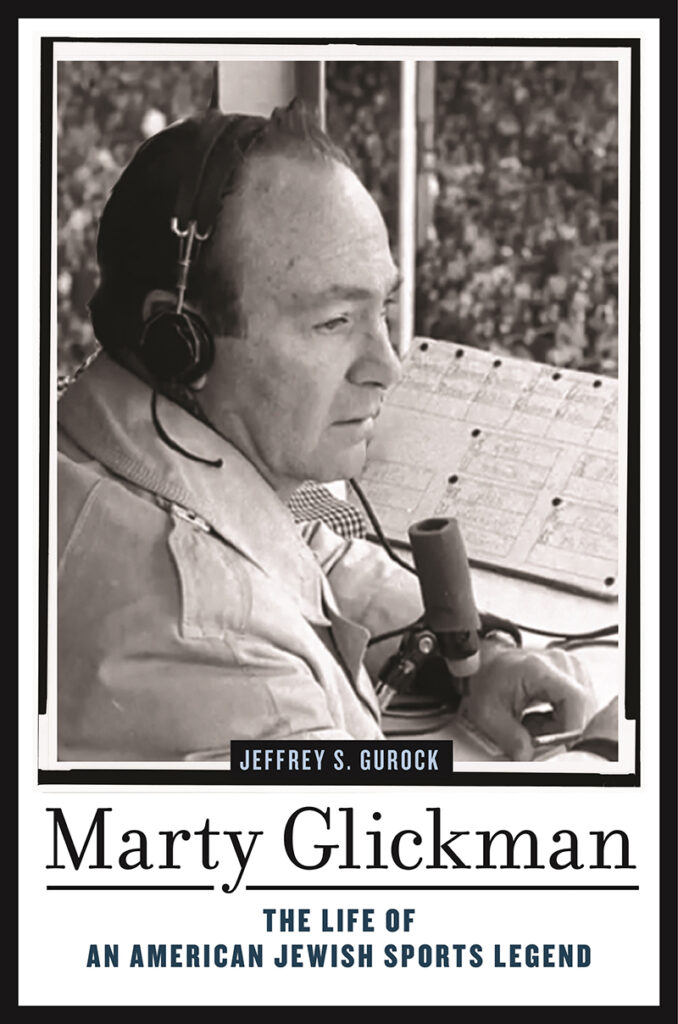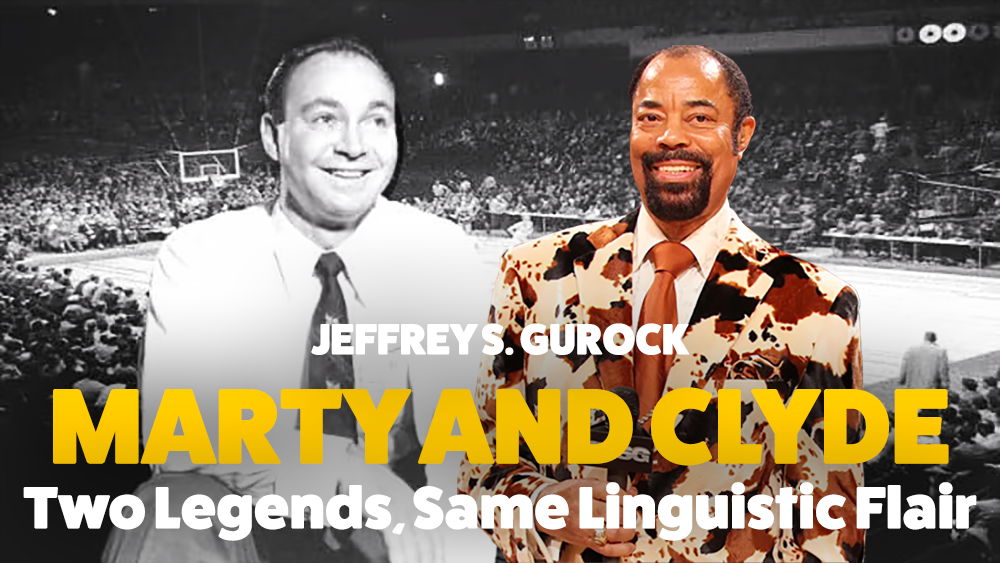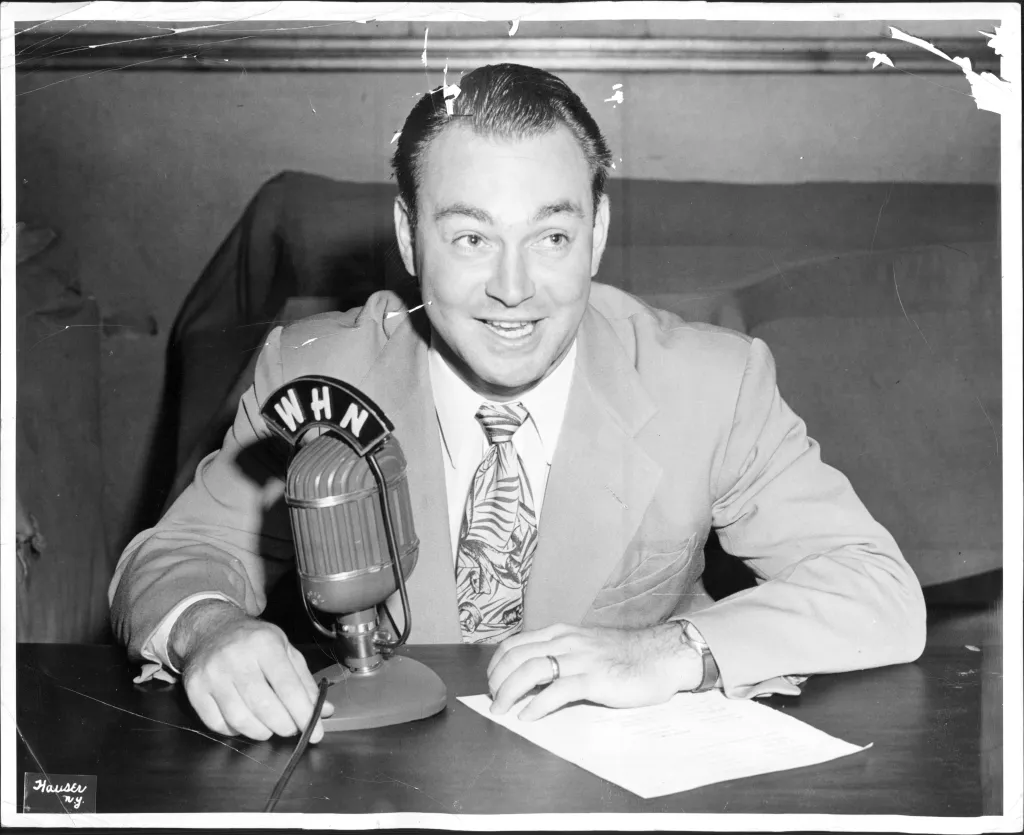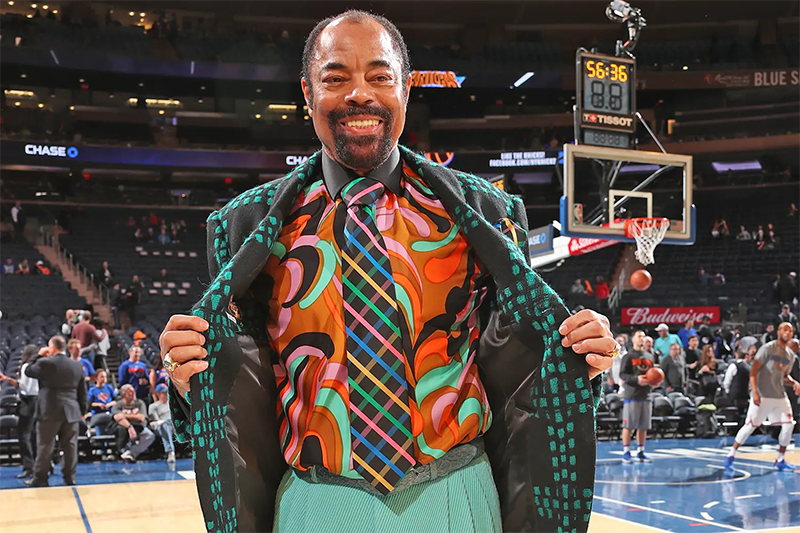“Change the name, the groove is the same.” If Jack Kerouac was still around today, that is the way the legendary voice of the Beat Generation would have connected the iconic Knicks’ broadcaster Marty Glickman with contemporary star commentator Walt “Clyde” Frazier, who right now is celebrating 25 years on the air. Back in the day, in 1957, Kerouac offered a tribute to his hero by having one of his fictionalized characters exclaim: “Man, have you dug that mad Marty Glickman, announcing basketball games-up-to-midcourt-bounce-fake-set-shot-swish two points. Absolutely, the greatest announcer I have ever heard.”
Were he listening to Knicks’ games today, Kerouac would have chuckled knowingly when he heard how Marty’s “swish” had become Clyde’s “swishing,” as in “Brunson was swishing and dishing,” sending a bounce pass to an open teammate who would the rise-up for a “gravity-defying” splash dunk. He would be no less impressed with Frazier’s rhythmic declaration as Julius Randle powered a “pulverizing, provocative” put back basket.
Meanwhile, I imagine that Glickman would be gratified by his own game-time reincarnation. From his perch in broadcaster hall of fame heaven, ensconced much like he sat in the mezzanine on the old 49th Street Madison Square Garden, Glickman would appreciate the style and content of Frazier’s delivery. He knew and influenced the former athlete as Frazier achieved his own radio and television success.
But perhaps, Glickman would be even more delighted by Frazier’s use of multi-syllable words to characterize courtside action. Glickman proudly recalled how his word choice set the scene, but he was also very happy that local schoolteachers, the day after a game, had their students consult dictionaries for definitions of words like “torpid” or “desultory” or “phlegmatic:” terms they had heard from the Garden broadcast booth. Glickman spoke to them as they listened under the covers with an ear plug in their transistor radios.
Incidentally, Jewish listeners were gratified when Glickman interspersed Yiddish words in his accounts. He had “no hesitancy about it” and even said “I particularly like to use it with gentile people.” Even as he comfortably spoke to, and for, all of his fans in Gotham, it was a subtle indication of his Jewish background and a linguistic synthesis of American identities.
Frazier is no less a teacher to fans of all ages and groups with his judicious use of words and terms like “riverting” or “precocious neophyte” to describe a rookie. In fact, he has gone one step further than Glickman. Early in his broadcast career, he authored a “Word Jam Guide for Awesome Vocabulary,” directed at pre-teens. Of course, students today don’t need a thesaurus or dictionary. The internet is just fine.
All told, these broadcasting legends of different generations have done more than just entertain. They have educated their legions of New York fans of all ages, and changed the vocabulary of basketball forever.

Jeffrey S. Gurock is the author of Marty Glickman: The Life of an American Jewish Sports Legend, the first comprehensive biography of the preeminent voice of New York sports.
For close to half a century after World War II, Marty Glickman was the voice of New York sports. His vocabulary and method of broadcasting left an indelible mark on the industry, and many of today’s most famous sportscasters were Glickman disciples. Marty Glickman has also been remembered as a Jewish athlete who, a decade before he sat in front of a microphone, was cynically barred from running in a signature track event in the 1936 Olympics by anti-Semitic American Olympic officials. This lively biography details this traumatic event. Marty Glickman is a story of adversity and triumph, of sports and minority group struggles, told within the context of the prejudicial barriers that were common to thousands, if not millions, of fellow Jews of his generation as they aimed to make it in America.




 Six Classics of Queer Literature
Six Classics of Queer Literature